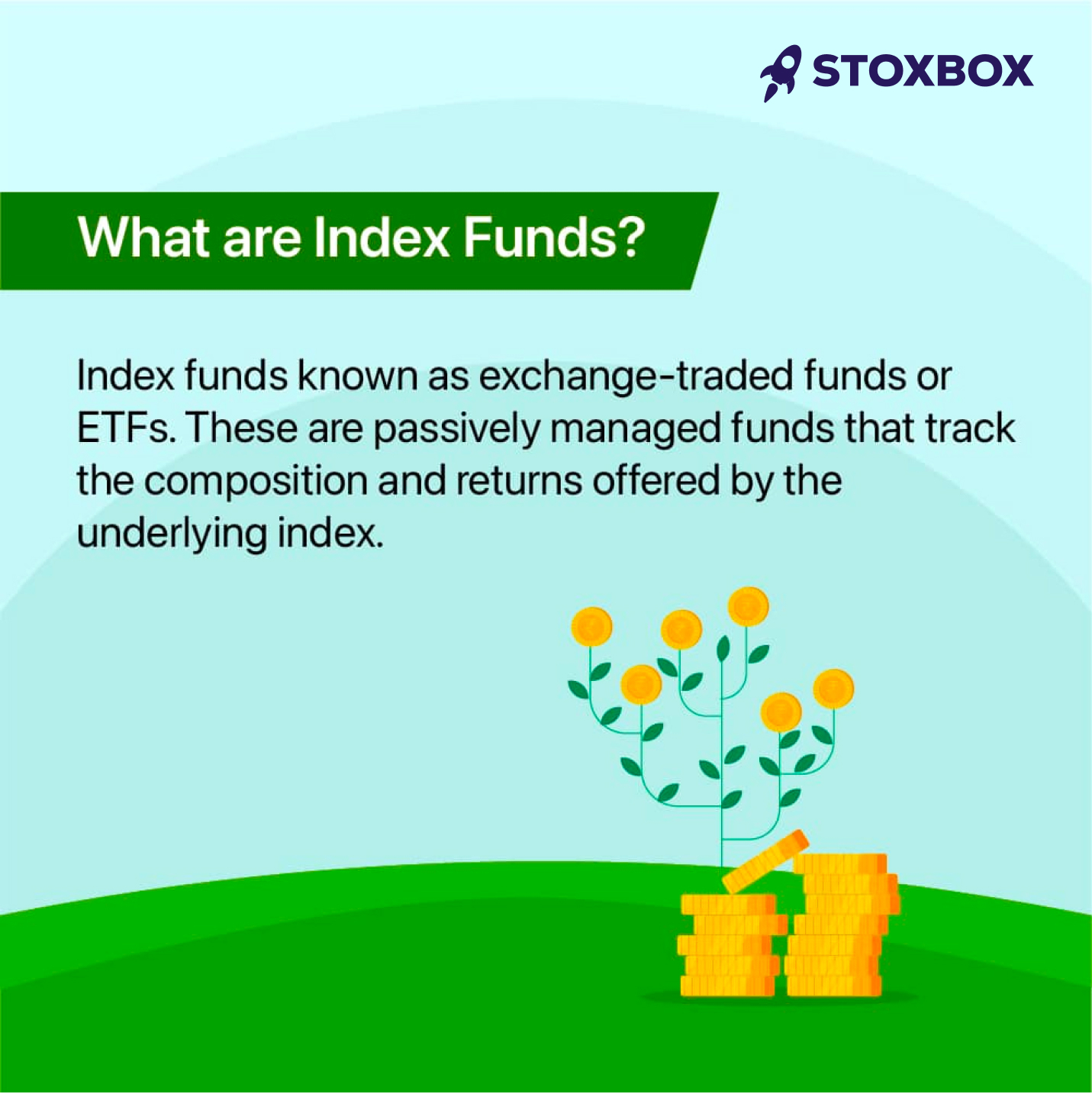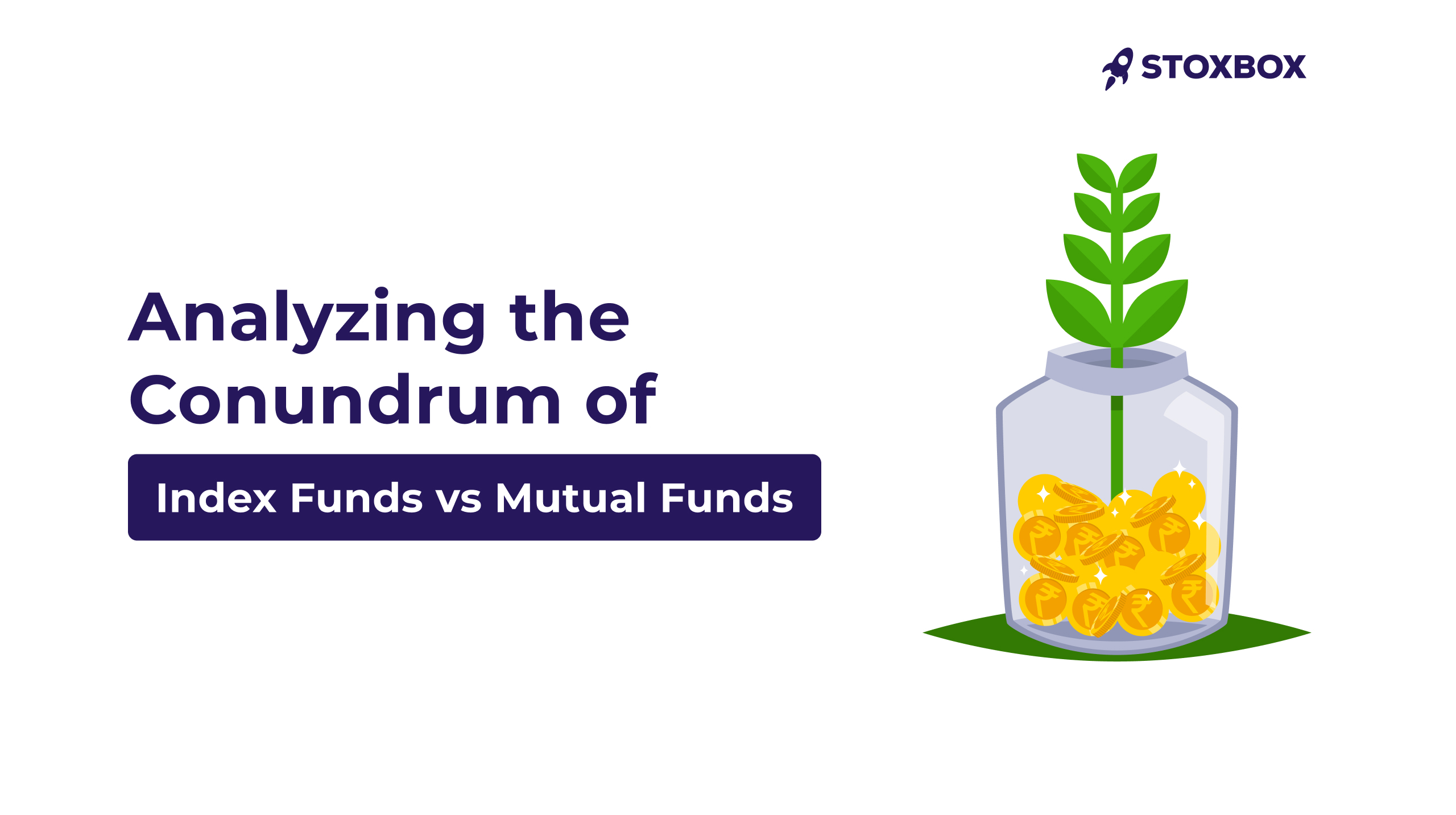Understanding Mutual funds and Index funds and there Conundrum
Table of Contents
Analyzing the Conundrum of Index Funds vs Mutual Funds
Have you ever faced a situation in your investing journey, where people ask you to choose between index funds and mutual funds? Have you been in a dilemma of index funds vs mutual funds? If yes, then it is time to clarify your doubts and clear the confusion in the equation of index funds against mutual funds. One of the biggest aspects you should know is that, often, people pit index funds against mutual funds, without understanding that they are not mutually exclusive! One is a subset of the other! This means that index funds are a subset of the mutual fund asset category. So, the question should be whether to invest in index funds, or other types of mutual funds, such as large-cap funds, sectoral funds, or debt funds.
What are mutual funds?

When do you turn towards mutual funds? People usually turn towards mutual funds when they want to start making debt and equity investments, without actually deciding on the portfolio or actively monitoring the variants. Mutual funds are professionally managed investment vehicles that pool money from many investors and then invest the collected corpus in pre-decided securities. For instance, if you are investing in a debt mutual fund, your scheme will park your money, and the money of the other investors, in fixed income assets such as government bonds, corporate bonds, commercial papers, etc. Separately, if you invest in an equity mutual fund focused on large capitalization companies, then the fund you chose will invest its corpus in companies that have a market capitalization of over 20,000 crore rupees.
A major benefit of mutual funds is the aspect where your money is invested in a professionally managed way. You need not worry about the stocks or fixed income assets that will comprise your portfolio, or about the returns on these securities since your mutual fund is professionally managed by experienced fund managers who are keen on offering you the highest possible returns. Further, you can also start your mutual fund investment journey via the systematic investment plan route, wherein you can invest as little as Rs. 500, making it an extremely accessible option. For instance, you can participate in the growth of large-cap companies by investing just Rs. 500, through mutual funds. Instead, if you went the stock market route, you would not even be able to buy a single stock of some of the highly valued companies.
Types of Mutual Funds

Within mutual funds, you can choose from a variety of options, based on your risk appetite, return requirements, time horizon, and investment goals. For instance, if you are young and have a high-risk appetite, as well as a desire to earn high returns, you can invest in small-cap mutual funds. These funds park your money in companies with a market capitalization below 5000 crore rupees and show tremendous potential for future growth.
Alternatively, if you are around 50 years old, and want to start a mutual fund to supplement your retirement corpus, you will have a low-risk appetite and a desire for stable returns. In this scenario, you can invest in low-risk mutual funds such as debt funds and large-cap equity funds. Therefore, mutual funds offer you a wide range of options, based on your investor profile. This is where index funds make an entry.
Understanding Index Funds

Index funds are an offering within mutual funds. These are passively managed funds that track the composition and returns offered by the underlying index. Index funds are also known as exchange-traded funds or ETFs since they track the performance of the exchanges. For instance, if you invest in a Nifty50 Index fund, then your mutual fund will track the composition and performance of the Nifty50 index, enabling you to earn returns that are aligned with the returns offered by the Nifty50. Index funds are an excellent option for investors who wish to enjoy returns that are at par with the market while paying a lower fee to the mutual fund house. Index funds are a cost-effective option because fund houses charge low commissions for such schemes. This is because these schemes do not require active management from fund managers – since they directly track the underlying index, they are managed passively.
While index funds offer you market-linked returns and a low cost of investment, your investment will not offer market-beating returns. Actively managed funds are always in pursuit of higher returns, which is not the case with index funds. Further, in a falling market, index funds will fall in line with the underlying index, since the passive investment strategy does not allow for downside protection or reaction to the triggers. Alternatively, fund managers in active funds would always have downside protection to safeguard your corpus. They would also be able to take reactive steps to mitigate the losses, in the event of a market crash. Therefore, a major liability of index funds is the lack of control over the holdings or the movements.
However, if you are happy to earn market-linked returns, without taking any chances based on the decisions taken by fund managers, then index funds are an excellent choice for you. Further, if you are unwilling to spend higher amounts on mutual fund commissions, then index funds are the way to go. Now that you know the answer to the index funds vs mutual funds conundrum, it is time to select the best fund for you and start earning returns on your investments.
Your Wealth-Building Journey Starts Here

You might also Like.
No posts found!
